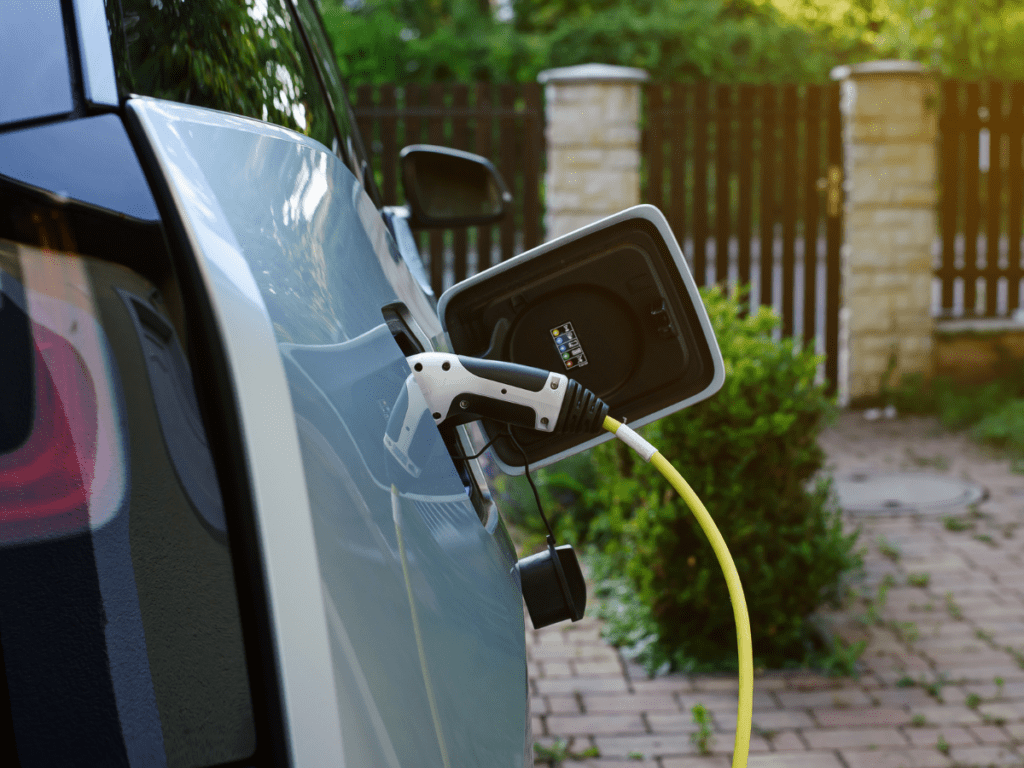
What Does An EV Charging Station Cost?
We are finally seeing the emergence of bigger and badder electric vehicles on the market that are capable of pulling campers! Not to mention, companies have released fully electric RV concepts that will hopefully be on the market soon (we’re looking at you, Winnebago)! Finally, true eco-friendly camping options for those that prefer the comforts of a camper are within grasp.
That being said, having electric RVs is only one piece of the puzzle. We also need to be able to charge them. While it’s pretty easy to charge your EV at home, things get a little more tricky once you’re out on a road trip. Luckily, you can now find charging stations across the country, from Walmart parking lots to gas stations to highway hotels.
So, the final question remains: how much does an EV charging station cost?
How EV charging stations are priced
Figuring out how much an EV charging station costs can be difficult because there are many different variables at play. For starters, charging speeds can vary based on the type of vehicle and charger. Plus, different charging stations have varied pricing models. For example, some may charge per minute, session, or kilowatt hour (kWh). There are also different levels of chargers, from levels one to three. Level three is the fastest, which tends to come at a premium.
The cheapest options for charging your EV are at home or with a free charging station, but this may not always be possible when you’re on a road trip. Planning ahead is the best way to keep costs down.
Types of EV charging stations
If you want to plan your trip to minimize your charging budget and waste as little time as possible, it’s essential to understand the types of charging stations available. Once you have a solid grasp of the different styles and their average costs, you can use apps such as RV LIFE Trip Wizard to plot your road trip route.
Home charging stations
Charging your EV at home is the easiest and cheapest solution. Most EV users will do the majority of charging at their house, typically overnight. This will work for electric RVs or towing vehicles as well, at least to prepare to leave on your trip. The cost to fill up at home will depend on your electricity rates.
Plugging into a standard outlet is considered a level one charging station. While this is the slowest, your vehicle will have plenty of time to charge overnight. Still, some drivers opt to install a level two charger in their homes. Unfortunately, this can cost up to $2,000 or more.
To estimate the price of charging your EV at home, you can use an average of 2.9 miles per kWh if you don’t know your vehicle’s exact numbers. Let’s say your car has a range of 200 miles, and your electricity costs $0.135 per kWh. Then it will cost you approximately $9.31 to charge your EV at home.
Free charging stations
Once you’re out on the open road, finding free charging stations is the cheapest option for charging your EV. Surprisingly, these aren’t as rare as you might think. Plus, they’re easy to find by using apps like Plugshare to filter for free charging stations only.
You may find free charging stations by Volta in commercial parking lots like malls or grocery stores. Their level two chargers are free thanks to the revenue they make on advertisements. Perhaps more convenient for those hauling a trailer or driving an electric RV, you can often find free charging stations at hotels or tourist destinations.
Filling up your vehicle at the free charging stations won’t cost you a dime. However, these stations sometimes have time limits and likely won’t offer level three chargers.
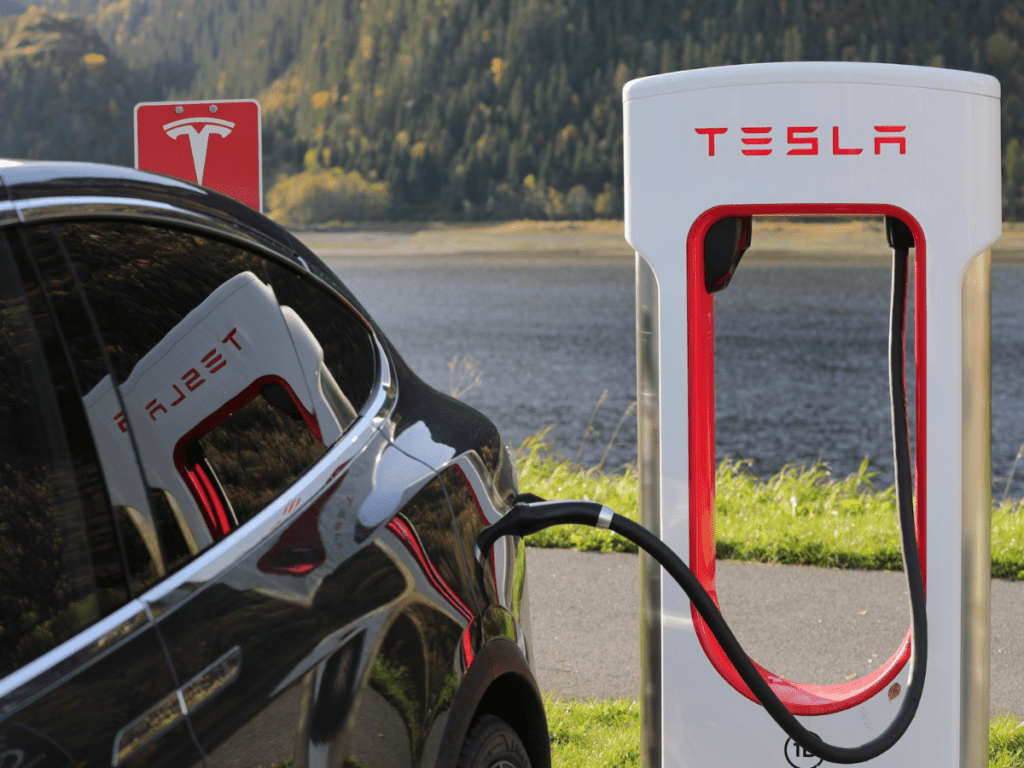
Network charging stations
Another option for charging your EV is through one of the growing charging networks. The most popular networks include Tesla, Electrify America, and EVGo. Networked charging stations are connected to an extensive infrastructure of other chargers and have access to online management tools. That means they offer easy-to-use maps on their apps and even the option for reservations.
Some EVs come with a subscription for free charging sessions on specific networks. If you don’t have a free pass from purchasing your vehicle, the networks typically offer pay-as-you-go or monthly membership options.
Because there are so many variables when it comes to networking charging stations, it isn’t easy to estimate how much it costs to fill up your vehicle. Based on the previous example of a 200-mile range and EVGo’s pay-as-you-go pricing of $0.34 per kWh plus a $0.99 session fee, it would cost about $24.40 to charge your vehicle.
Commercial charging stations
Commercial charging stations are also generally networked. However, there are chargers that businesses can install that allow them to choose their pricing. As mentioned above, these businesses may offer free charging for customers or employees. Others may charge fees in hopes of making some extra revenue each month.
For example, ChargePoint sells hardware and software to other institutions that allow them to offer level one, two, or three charge points. Unlike with other network charge points, these businesses will keep all of the proceeds earned from the charging stations if they decide to impose a fee.
Because these businesses can offer different levels of charging and are allowed to set whatever price they want, it’s not easy to estimate how much a full charge may cost. But, on average, charging your EV can cost between $10 and $30 on paid commercial charging stations.
So, how much does an EV charging station cost?
If you’re looking for the lowest possible costs when planning a camping trip with an electric tow vehicle or even an electric RV, you’ll need to prepare ahead of time. With the proper planning, you can charge your vehicle for free with carefully selected stops and hotels with free charge points.
Unfortunately, free options aren’t available across the entire country. Depending on your route, you may have to pay for a charge. Although there are many variables, it’s safe to assume you’ll pay between $10 and $30 for a full charge.
For help mapping out your route for your next RV getaway, look no further than RV LIFE Trip Wizard. This online planning tool makes it easy to plan an RV-safe route. It can also locate interesting sites along the way, all according to your travel preferences. Get RV LIFE Trip Wizard with its accompanying RV LIFE App, and start planning your adventure today!
Related articles:

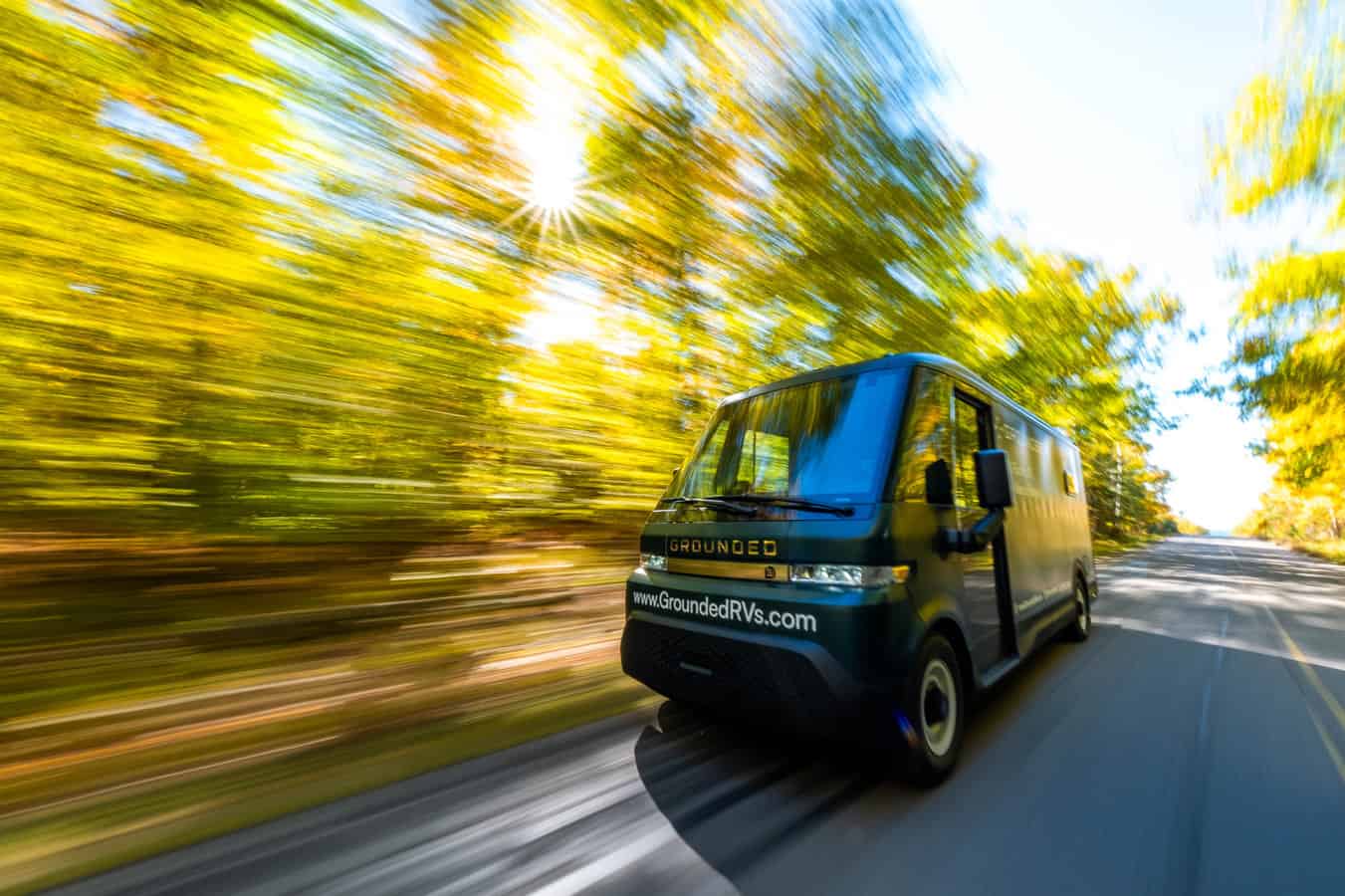
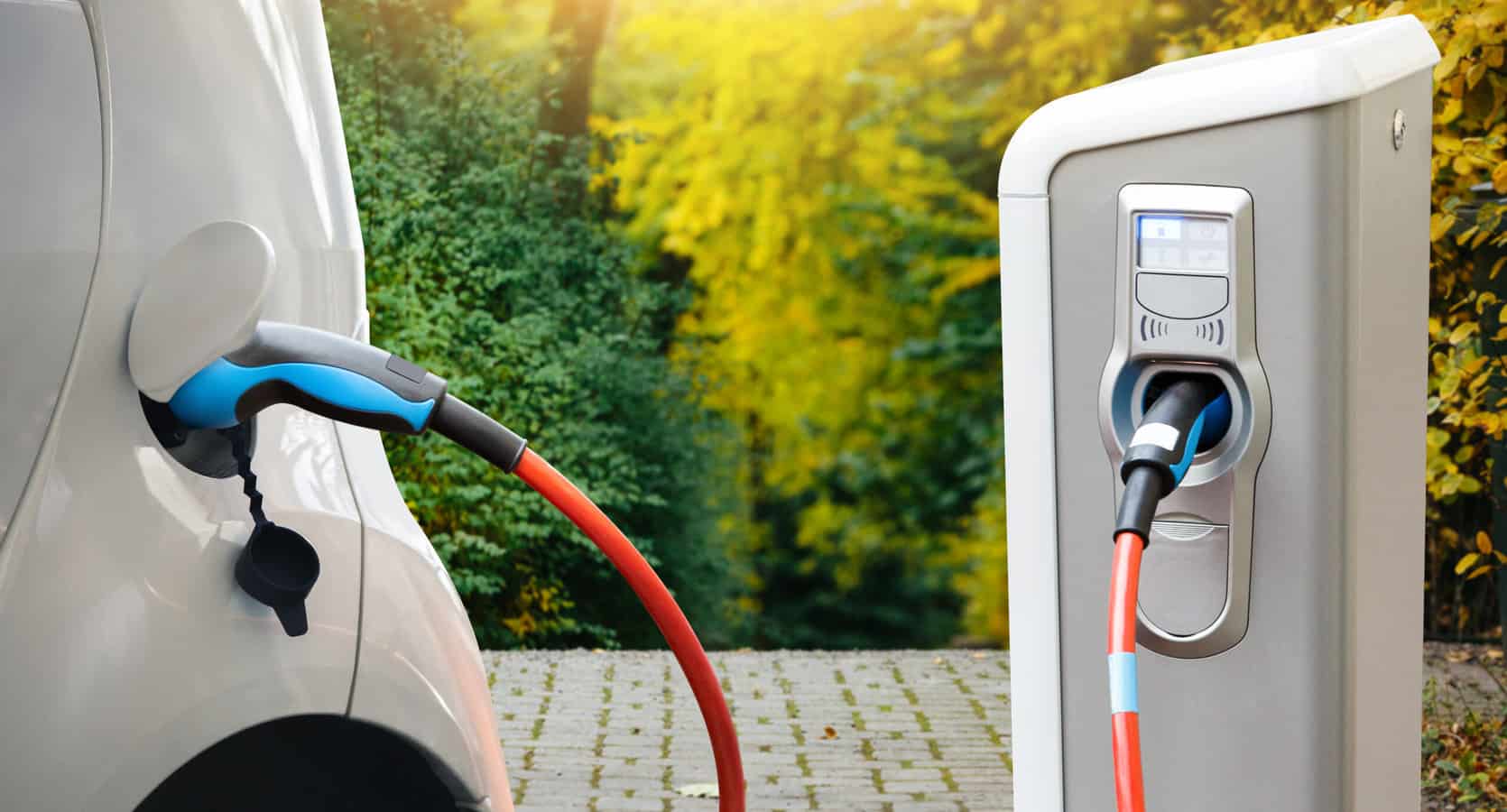
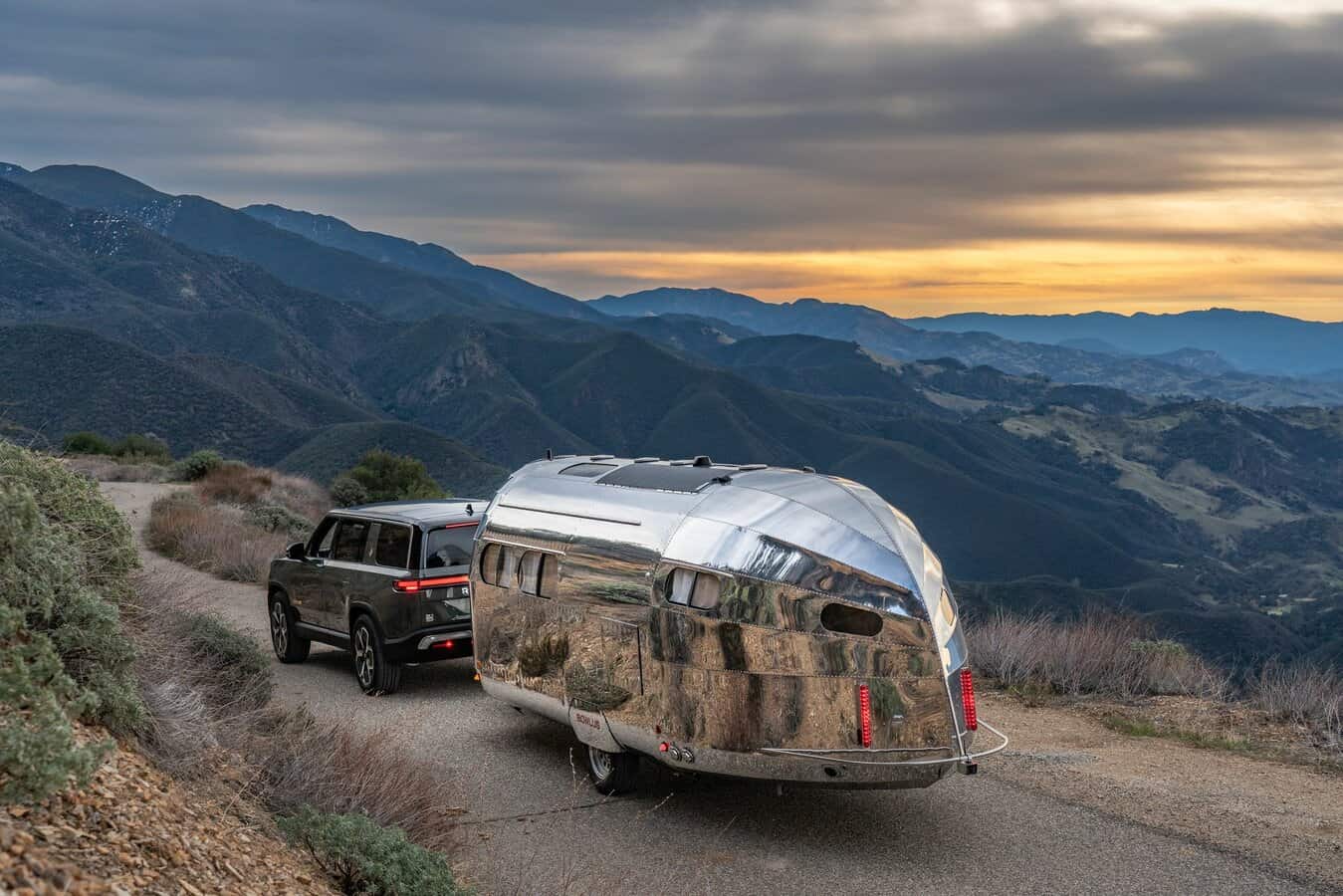

Don’t be fooled all you EV only cars! Wait until EVs get a State and Federal road tax bill soon in the making! Don’t buy these tax deferred cars, Uncle Sam soon will be knocking and will go back even if you sell it. The EV market isn’t the way to go. Hybrids get 500 mile range before one 10 min refuel time. Don’t we all ready have enough charging cords in our life! Don’t buy these foolish toys.
All the marketing and political nonsense accentuates the “pros” and ignores the “cons.”
It take over 500,000 tonnes of mined earth to make 1 EV battery. Volkswagen released their research which determined that EV’s are more polluting than gas vehicles for the first 60,000 miles and that at 100k miles the perceived reduction in emissions was about 16%. Not long after that Toyota’s boss gave a press conference stating that Toyota was not on board for the change to EV’s and that most other automakers felt the same way but are afraid to speak out against them in the woke cancel culture world. Toyota stated Hybrids and Hydrogen are their future. I’m onboard with hydrogen. EVs are a giant pit where no matter how much money you throw at it there are no benefits. You get less mileage of use, long “refuel” times and a general lack of infrastructure outside of large cities. All those who jump on the EV train are setting themselves up for a disappointing failure. And CA will be the first state to sink in that ocean of waste.
Take your charging stations, your electric battery powered cars, your global warming hoaxes n your woke fake installed president n all the lying journalists n send them all straight to the hottest Kelvins of the underworld ! Anyone that promotes such idiocricy should be executed!
Ahhhh, is Muggy having a bad day?
I love my EV it charges overnight in my garage.
With a 235 mile range charging every 4th day is no big deal.
My single long trip I charged overnight at the hotel for free and twice on the trip at a fast station.
Cost for the trip (not counting my home charge) was $40
Planning with passengers in the car is a must.
Do you avoid using heat or AC to enable obtaining 235 miles per charge?
I’m all for EVs, I’m a coal miner, anything that taxes our electrical grid will keep me in business.
The real truth is about controlling the people. Look who invested in the materials for the batteries that work in OUR government and that will tell you all you need to know of why they are pushing trash that doesn’t work, nothing to do with “going green”. It’s time every one of us exercises our full rights and vote every SOB out of government and put people in that are for us, not their own pocketbook.
Twice I have seen a EV going down the road with a cargo rack on the back with a generator. Cracks me up.
Solar would charge your ev every night so it’s ready early in the morning. Thise panes work off the moon right?
I’m not sure if your just a little slow, or you don’t know about being prepared, it’s no different than carrying a gas can in your trunk.
Ususual we have a gas gauge to tell us if we need gas we don’t carry a gas can
Every article I read concerning charging stations and road trips mentions 2 things over and over. Planning ahead! My plan has always been put gas in and go anything else us a PITA and an infringement on my freedom of movement which what this is really about. Then is the apps thing well what if I choose to have a “Just Talk” phone ? In other words not a smart phone. No apps; I know a lot of seniors with just phones.
I’m with you, with abundance comes, Freedom and Liberty. That’s my choice.
Charging for free is Bull Shit! Someone is paying, most likely a tax payer! You want an electric car you pay to charge it, I shouldn’t have to!
The two comments above are very telling but I have to wonder who found that many charging stations coming across this country. First of all, if you are in an RV and living in that RV, I really don’t think you will find many Hotels that will let you use their charging stations. Second, if we are talking about EV charging stations in general, in addition to the above stated “REAL LIFE” problems what do you do about the 50% of the people that rent and can’t buy and install a charging station for their personnel use? Then to solve that dilemma, will all landlords be forced to install “a” charging station for each rental? And how many rentals be they apartments, hi rises, or individual homes have just one vehicle? What about the problem of the first joker to get to the charging station, plugs in and doesn’t come back to unplug until the next morning, long after he had a full charge. EV’s will be a relatively small niche group for a long, long time no matter how much the government forces it on us. I just pity the citizens of places like California that are being forced to take on all these problems and the cost both in money and the environment. Look at what it is costing environmentally just to produce the batteries.
Dont buy Evs plain and simple 100x worse for the Environment
Also, how long does it take to fully charge?
4-6 hrs I hear
Eco-friendly could be combined with Healthy, by making those chargers bicycle powered. That’s about the best they may be able to do after Ian, in Florida. Or anywhere else that has had a natural disaster.
But everything is coming up roses, if you are a acolyte.
Another blog, showed a ford F150 towing a very small empty car trailer one way of 32 miles and coming back with a model A pickup which is about the weight of a camper coming back. It was charged for 200 miles. When he got back home he had about 20 miles of charge left. He could have made it another 5 miles maybe. So you would be charging at a station about every 70 miles. Guess you don’t plan on going very far on a road trip. I usually travel 2500 to 3500 miles when I out on the road. This would mean I would be spending more charging the F150 than actually driving it or having a vacation.
Your story makes it sound like there is no problem with EV’s in RVing.
I saw that. The EV stuff is all hype, nothing practical about it. Very hot or cold seasons, you can’t charge due to the grid. Natural disaster, you better have that “Gas”, generator. These EV trucks are designed for actual long distance towing.
Holy cow! Someone who actually gets it! Thank you! I thought it was only me coming to the conclusion that EVs and those that push them on us are full of sh*t! Besides strip mining and brine pooling the Earth for all of the precious metals needed for the batteries, then transporting the substances to the factories for conversion, then production and transporting them yet again to the car manufacturers, 60% of the electricity made comes from burning fossil fuels!
The Eco-friendly is getting a little old. Every electric vehicle gets there energy from one of four places. Coal, Water, Gas , and wind. If wind was so great we would not be subsidizing the energy company. Water supplies a small part of our electricity. Coal and gas supply most the electricity . The other problem with this green energy is if only 10% of our vehicles are electric we will have rolling blackouts., and just like California we will be ask to not charge our EV Cars and RVs. We need to build up the infrastructure before we can all drive EV.
Amen brother! The whole “green energy” B.S. is control over our lives. When you can’t recharge you’re at the governments mercy. They can do anything they want and you can’t get away from them. When I was. Teenager many moons ago back in the late ‘50s and ‘60s a car was my freedom. I was no longer held back by my parents. This is the same analogy with having to depend on government controlled EVs and their chargers. It’s my understanding some teens don’t even get drivers licenses at 16 anymore.
You left out solar as a source of electricity. Yes, the infrastructure can barely handle the load today much less the extra demand EVs are going to need. Hopefully the new infrastructure bill will actually address that need as promised.
Still, range with current battery technology is severely lacking for most people’s driving needs. I think it will be a huge game changer when true solid state batteries hit the market in 5 or so years a they will provide 4x the range at 3x charging speed at less than 1/2 the weight.
That’s why I’m waiting 5 years before I buy an EV. If I bought one now it would be obsolete by the time I paid it off.
Solar is another option
We have had an EV for nearly 8 years. We love it. We installed a PV System for it and only charge it during the day when our 2 PV Systemare at pike output. When you compare operating cost of EVs and the fossil fuels dirty vehicles EVs are
6 times cheaper to operate. We run our on sunlight that is free when you are setup to capture it.